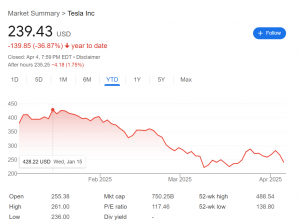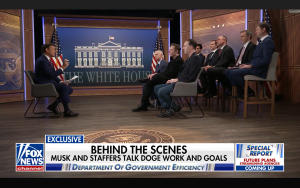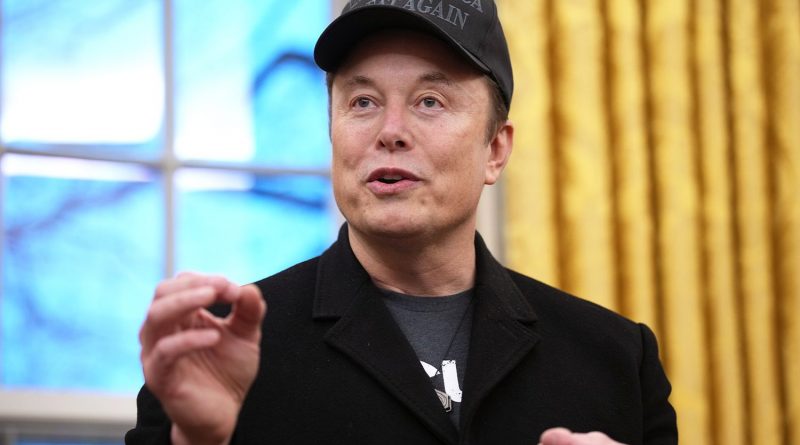Elon Musk’s Effect on Tesla as DOGE Head
Ethan Kassai
Tech Writer
In January 2025, Elon Musk, a prominent billionaire known for his business ventures, Tesla and SpaceX, took on the role of Head of the Department of Government Efficiency, known commonly as DOGE, in President Donald Trump’s Administration. Currently still serving as CEO of Tesla, Musk is coming under fire from many across party lines for his political activities, leading to a ripple effect across his electric vehicle brand. Musk’s influence and keen eye for innovation have been of paramount importance to Tesla, but as he becomes a more central figure in the political eye, new challenges are emerging for his company impacting the brand in all aspects from perception and consumer trust to sales and stock performance.
The Department of Government Efficiency emerged from discussions between President Donald Trump and Elon Musk and was officially established by executive order on January 20, 2025, with the goal of cutting federal spending characterized as “waste, fraud, and abuse.” Musk’s appointment aimed to bring intense disruption to Washington and aid in dismantling what President Trump considers a corrupt government system, but this appointment has put Musk under intense scrutiny from the public. Activities on social media, controversial public statements, and alignment with the Trump administration all have contributed to alienation of many of Tesla’s more progressive consumers. Though DOGE has been in existence for less than three months, a shift in perception by the public can already be seen. Many widespread protests have appeared across the US, such as “Tesla Takedown” which, according to NPR.org, encourages “…people to boycott the EV maker by selling their Tesla cars and stocks.”

Even in such a short time, harsh impacts can already be seen. In February of this year, Tesla stocks were down approximately 27% overall, dropping 72% and 76% in Germany and Australia respectively, which coincided with controversial incidents involving Musk. Further, first-quarter vehicle deliveries were down to 373,000, which is close to a 3.5% drop from the same time period last year. Along with factors directly associated with Musk, these declines can be attributed to increased competition in the electric vehicle space as well as an aging lineup of vehicles being offered. Some analysts predict that all these factors will impact Tesla in the long-term, leading to an overall loss in market share and potential earnings.

Elon Musk has publicly noted the challenges of his role in government and DOGE, explaining that it is “costing me a lot to be in this job.” Musk also expressed the impacts that government service has on his private businesses, specifically Tesla and SpaceX, stating on “Special Report” with Bret Baier that, “If I wasn’t in the government, I could lobby and I could push for things that are advantageous to my companies, and probably get it – probably receive them,” which brings out some complexities that come with owning and leading private businesses and becoming involved in public service.
Sentiment among investors in mixed, as many believe that Musk’s leadership and value to Tesla are irreplaceable, while others believe that the company would be better off without him. Recently, though, Elon Musk has hinted at possibly leaving his post at DOGE to focus back on the private sector, leaving room for speculation on how a decrease in his political involvement could impact Tesla moving forward. With Elon Musk and his involvement with the Trump Administration becoming more and more controversial, it is left to be seen how Tesla and the economy across the US and the world fare moving forward.
Ultimately, Elon Musk’s involvement with DOGE has created a large political divide and while he is at work in Washington, Tesla must work to control the fallout. Tesla’s next steps, in all aspects of the business, are critical to determining its future in the constantly evolving electric vehicle market.
Contact Ethan at ethan.kassai@student.shu.edu

